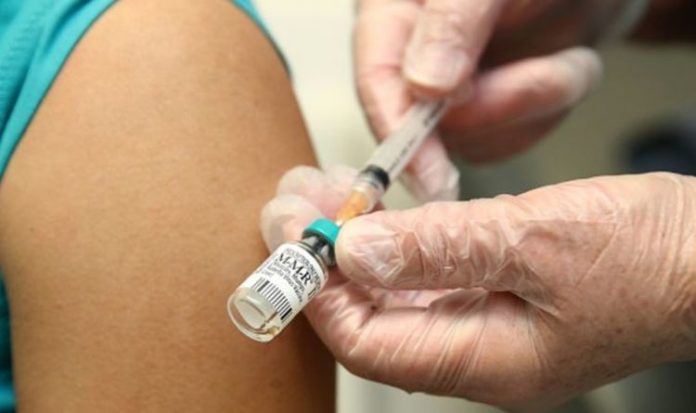Speaking to BBC Radio 4’s Today programme, Kate Bingham said a coronavirus vaccine could be approved by the end of 2020 but that doses would be sent abroad to protect vulnerable people across the world before vaccinating the whole of the UK. She said: “If we are in the fortunate position where more than one vaccine is in fact safe and effective, we will then be working as we are very actively working with our international partners to explore how we can ensure that everybody who needs to be vaccinated around the world, will receive a vaccine.
“This is a global pandemic and just that we’re able to vaccinate the UK will not solve the problem we have.
“So the international distribution of vaccines to all those people is a fundamental priority for what we do.”
BBC radio host Martha Kearney noted: “So we could be giving it away if we end up with too much.”
Asked when the vaccines could start be available to the public, Ms Bingham replied: “I think the first possible time is towards the tail-end of the year if everything works.
READ MORE: Russia brands vaccine safety concerns as ‘groundless’ jealousy
“And the two vaccines that are most advanced that could be potentially available at the end of the year, are the Oxford vaccine that has partnered with AstraZeneca and the BioNTech vaccine which has partnered with Pfizer.
“Both of those two could potentially have their efficacy readouts before the end of the year which will then be presented to the regulators to determine whether or not the data was sufficiently robust to allow a registration.
“But more likely I think it will be next year.”
Britain will buy potential COVID-19 vaccines from US drugmakers Johnson & Johnson and Novavax Inc, the companies said on Friday, bringing the total number of deals by the UK government to six as the race for shots heats up.
The latest agreements bring the UK’s total number of doses secured to 362 million for the population of 66 million.
J&J said it has also agreed to collaborate with the UK Government on a global Phase 3 trial to explore the two-dose regimen of its vaccine candidate.
It will run parallel to the Phase 3 trial investigating the single-dose programme.
No vaccine has yet proven to work, but more than 20 candidates are in clinical trials.







